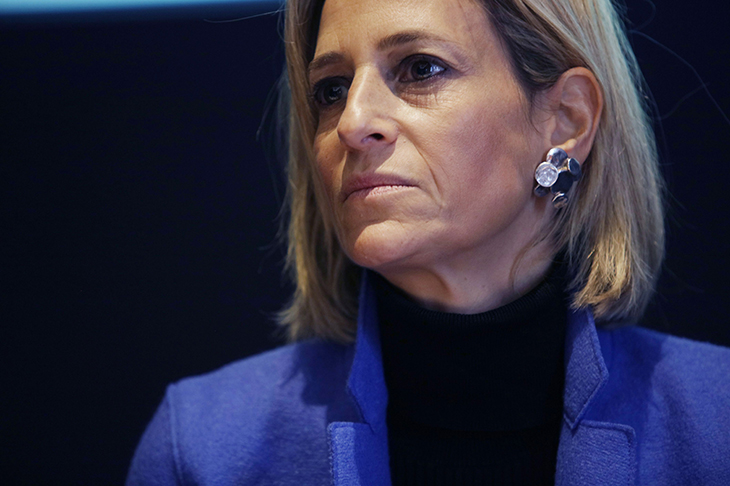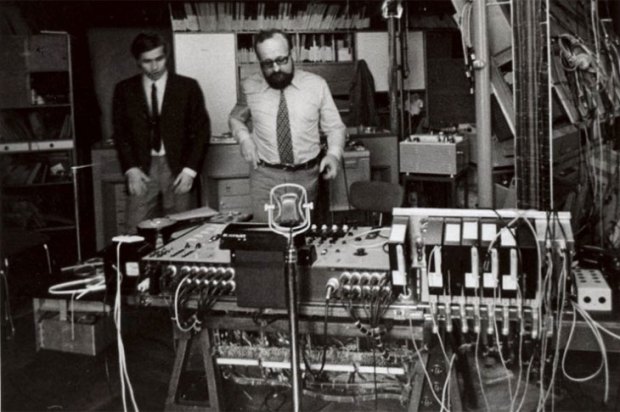It can’t be easy to find yourself on the other end of the microphone when you’re a journalist of the calibre of Emily Maitlis. You know all the pitfalls, how easy it is to be teased out of your bunker, to say more than you ever intended under the scrutiny of an ambitious, driven interviewer with a keen nose for a story. In One to One on Radio 4, though, it was surprising to hear the ultra-cool Newsnight presenter almost in tears as she recalled covering the Manchester Arena bomb and the Grenfell fire. We could hear her voice catching, the tears welling up, her words stuttering as she tried to get her breath back.
She was being interviewed by Emma Freud, who coaxed Maitlis into giving more of herself away than we might have expected, not least by confessing at the outset that she herself had always wanted to be a news journalist but she knew she didn’t have the intellect or the self-belief to make it in that highly charged, competitive world.
As if to compensate, Maitlis began by telling us that at first she was ‘a terrible reporter’ (which seems unlikely given her unflustered poise now), leaving the mike on a bus in China and always letting the tape run out at crucial moments. How has she managed to overcome this early incompetence, bred from lack of confidence? ‘Age helps,’ she said, which sounded a bit absurd coming from someone who still looks as if she’s in her thirties (she’s actually 48).
But then the interview took another turn as Freud began to probe further by asking Maitlis what drives her, what is her mission. ‘I have a real horror of platitudes,’ she said. ‘I just want to unearth what people actually mean.’ She could have begun to sound drearily high-minded but Freud then suggested that ‘as the disaster gets more and more disastrous… and the death toll goes up’, surely it gets ‘more exciting’?
This set Maitlis off and she began to tell her own truth as she recalled being woken by a phone call from her editor in the middle of the night asking her to cover the bombing at the Bataclan concert hall in Paris in November 2015 and having to decide whether to go. She’d only just got back from the US and had hardly slept. ‘You have to work out the weight of the story by that kind of metric [the death toll]… I don’t at all like it.’
At first, listening to Rupert Everett on Radio 4 as he read from Derek Jarman’s memoir of his life in a remote cottage in Dungeness, he sounded too affected, too well bred. But it’s worth persevering with Modern Nature (directed by Simon Richardson), first because of Jarman’s writing, so limpid, fluent and filled with colour, but then because as he settles into the task Everett begins to read with such wonderful rhythm and pace, letting the words breathe, the images shimmer.
He knew the artist, film-maker and gardener and recorded his five-part reading at Prospect Cottage, Jarman’s home on the shingle Kentish beach (with real footsteps crunching across the pebbles, wooden latch doors closing, wind blowing through the windows), so when he comes across passages of Jarman waxing lyrical about the lavender and cornflowers, nasturtium and burnet rose he reads with sure understanding.
Once you get used to Everett’s voice, too, his personality recedes and Jarman’s words begin to take over through their powerful precision. He was 18 in 1960, and missed National Service by just a few months, ‘A whole generation of pretty boys forgot square-bashing and beat a trail to Carnaby Street.’ At that time, he recalled, ‘art was very heterosexual… beards and billiards at the pub’.
Diagnosed with HIV in 1986, Jarman charts the ravages of that illness through the 1980s: ‘so many friends dead and dying, a long list’. He retreats further into Dungeness. ‘I chained myself to this landscape. Back and forth I go into the garden like the boy with anorexia who weighed himself every five minutes.’ Asked why he insists on living amid such a bleak landscape with only a nuclear reactor for company, Jarman replies: ‘It’s much more interesting than Folkestone.’
The most intriguing sound of the week came from Abel Selaocoe on Radio 3 whose edition of Inside Music focused on improvisation and virtuosity. You’ll rarely have heard a double bass so fleet of touch as in Chris Thile’s ‘Tarnation’, in which the double bassist duets with a mandolin, or the unusual use of breath in the five-part harmonies of Zap Mama’s ‘Mupepe’. But it was the singing tuba that filled the kitchen with something really odd.
Selaocoe is a cellist who likes singing as he plays. He believes singing along encourages you to go beyond the confines of the instrument, which brought him to the music of Oystein Baadsvik, a tuba player who in ‘Fnugg Blue’ sings through his tuba, improvising as he goes. At first it’s percussive, like a motorbike revving up, then like a heavy-metal guitar riff before going into a swing-band medley before showing off ‘the power of groove’. Unusually addictive.
Got something to add? Join the discussion and comment below.
Get 10 issues for just $10
Subscribe to The Spectator Australia today for the next 10 magazine issues, plus full online access, for just $10.
You might disagree with half of it, but you’ll enjoy reading all of it. Try your first month for free, then just $2 a week for the remainder of your first year.














Comments
Don't miss out
Join the conversation with other Spectator Australia readers. Subscribe to leave a comment.
SUBSCRIBEAlready a subscriber? Log in